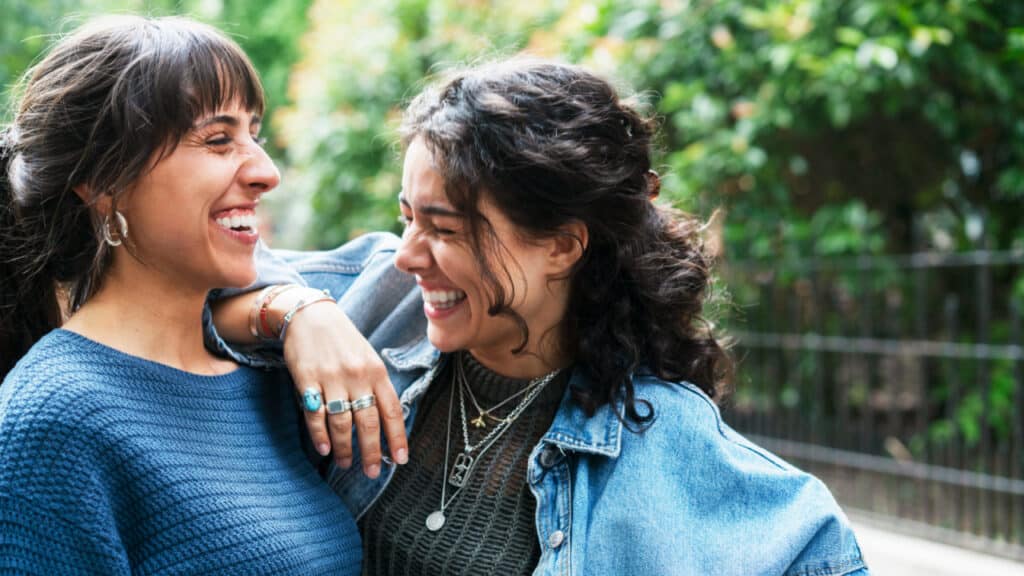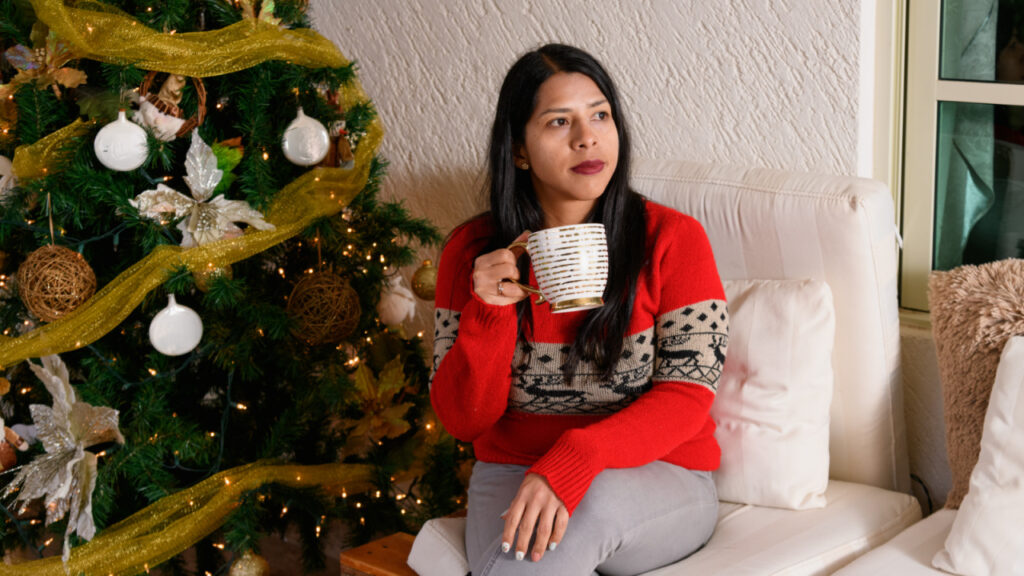Generational Body Shaming Is a Latina Problem—But It’s Not Forever
For better or worse, we get much of who we are from our families. Including our love for music, food, laughter, and community. Our sense of identity stems from our familial ties. But within those great loves come some of the more insidiously hidden nuances that ultimately affect our body image.
My journey with how I look only really changed when I hit my 30s. Before then, I always saw myself as the ugly duckling. For the better part of my adult life, I have always been slightly thicker, something people have “lovingly” reminded me of. But, as a child, I was on the thinner side because of my picky eating habits.
I remember coming home from elementary school one day and telling my mom that I was the ugly duckling in my class. I was convinced I wasn’t as pretty as the other girls. Now, being the proud titi of nieces, if any of them told me this, I would want to turn into Wonder Woman and turn the world on its head. So, I cannot imagine what this could have been like for my mother to hear.
Reflecting on it, even at the age of five or six, I had been surrounded by imagery and talk about body image by my mom, tías, and abuelas. That acute awareness of my body has been present for ages. And when I became older, it manifested into the most prevalent thing I control change — my weight.
Growing up, I believed that being thin was a marker of beauty
If I had a dollar every time someone commented on my weight, I’m certain I’d have a healthy bank account. For generations, Latinas have grown up hearing “well-meaning” comments about their bodies and how they look.
A 2017 study conducted by the Center for Hispanic Marketing Communication at Florida State University also found that Latinas were the group with the highest body dissatisfaction when compared to other women.
The University of Kansas cited a study on how our culture and family affect our view of our body.
Sarah Johnson-Munguia, a graduate student at the Center for the Advancement of Research on Eating Behaviors Lab at the KU Life Span Institute, evaluated responses from 19 Latinas who reflected “on influences on their positive and negative body image experiences.”
Johnson-Munguia wanted to explore this relationship to help provide more culturally relevant care as it pertained to eating behaviors and disorders.
The graduate student told KU News, “There’s a lot of stereotypes in the eating disorder world around who has eating disorders and what they look like. It’s a population historically underrepresented in the field and, because of that, understudied.”
The hold that the weight conversation has on Latinas is so entrenched in their psyche that I had my cousin who had bypass surgery shame me for my weight once she reached her ideal skinny.
“I never thought I’d be the skinny one and you’d be the fat one,” she told me as she drove me to the Santo Domingo airport.
Everything in me wanted to rip her to shreds. How could someone who has gone through her weight loss journey shame someone else? But, I understood with violent clarity that she was someone who people reduced to her weight all her life.
At that moment, I chose to walk in the light. I also wanted to get to the airport without incident.
Being minimized to our weight is a cycle that needs to be broken, and it starts with us
One respondent in the Johnson-Munguia study noted how she could be with her Abuela and be encouraged to eat because she’s “so skinny.” Then she’ll hear from someone else that “you’re eating a lot” if she grabs a second plate of food.
How many times have Latinas found themselves in this predicament? How often have we tried something on and heard that we’d look better if we lost some libras? Furthermore, how have we perpetuated this cycle and made those same “well-meaning” statements about others?
Science Direct cites a study that examined how Latinas from different countries in Latin America all experience body dissatisfaction to varying degrees. Ultimately, the thin, Eurocentric body ideals have a chokehold on everybody and every body.
Where does it truly end, and more importantly, with who?
Whoever decided that our weight was the ultimate qualifier of our worth needs a stern talking to from an angry abuela holding a wooden spoon.
My internalized negative view of my body was an unhealed wound that I carried with me subconsciously. When I thought I had been “healed,” I found myself in an emotionally abusive relationship that aggravated that wound. It poured salt into something I had only put a tiny curita on.
All the things I thought about my body felt true. I was the slightly thicker girl that guys wouldn’t want because, somehow, I believed they wanted someone more petite. I believed that I was unattractive and unlovable because of how my body looked. My ex, in all his glory, exasperated that “truth.”
In the years since that relationship ended, I’ve learned to slowly and intentionally love my body. Am I running at 100% capacity? No. But I’ve learned that you can love your body at any weight. And also hold space for the bits you’re not totally crazy about.
Now, I honor my body for what it does and who I am because of it
Once I reached my 30s, I completely pivoted my approach to my body and weight. I understand now I am the blending of generations of fortitude. It’s a matter of realizing I carry the strength, beauty, wisdom, and rhythm of women who came before me. I carry it in my bones, in the curve of my hips, and the flabby strength of my arms.
Something else the Johnson-Munguia study found was that our identities as Latinas positively impacted how we reframed our outlook on our bodies.
“Participants in the study also identified finding community support, seeking out representation, and focusing on the functionality of their body and not just how it looks,” KU News cited.
One participant shared how she was “super proud” of her heritage and the fact that she was Nicaraguan. How her body allowed her to dance and enjoy music. And that it connected her to her culture and helped her feel comfortable in her body.
Understanding that body image comments are something that has plagued Latinas for generations, I hold compassion for anyone who says anything to me. Obviously, things within reason, because another thing I got from my ancestors was a smart mouth.
I know that many are projecting something internalized that has nothing to do with me. Do I still get annoyed and want to yell? Of course, but I can only control what I can control. Everything is just noise.
Mirtle Peña-Calderón is a Dominican-born, United States-raised journalist, author, copywriter, and writing consultant with a deep passion for storytelling. She has a profound love for the vibrancy and nuance of her community. She loves to showcase it through her work on the various publications she’s written for, plus her blog, Latinidad Collective. Mirtle loves to write about culture, food, and human interest pieces that capture the subtleties of Latinos and Latines everywhere. You can learn more about her at mirtlepcalderon.com.




